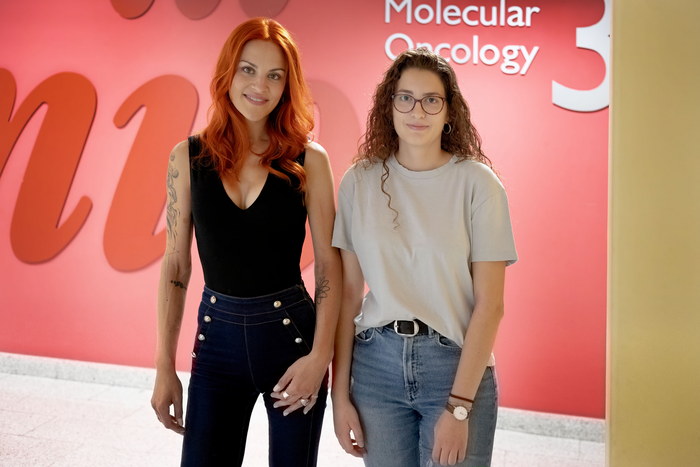One of the main challenges in oncology is the development of drugs against KRAS oncogenes. These oncogenes -genes that cause cancer when mutated – are responsible for a quarter of all human cancers, including the three tumor types with the highest mortality rates: lung adenocarcinoma, colorectal carcinoma and pancreatic ductal adenocarcinoma.

Credit: CNIO
One of the main challenges in oncology is the development of drugs against KRAS oncogenes. These oncogenes -genes that cause cancer when mutated – are responsible for a quarter of all human cancers, including the three tumor types with the highest mortality rates: lung adenocarcinoma, colorectal carcinoma and pancreatic ductal adenocarcinoma.
Although KRAS oncogenes were already discovered by Mariano Barbacid’s group four decades ago, the first drug against them -Sotorasib, Amgen- has been approved by the FDA only a year ago. As important as this milestone is, Sotorasib acts only against tumors carrying one of the multiple mutations present in the KRAS oncogenes and its clinical impact is therefore limited. Moreover, patients treated with this drug develop resistance within a few months of treatment.
RAF1 and lung adenocarcinoma
Beyond the development of drugs against KRAS, one of the most active research areas at the moment seeks to identify inhibitors of proteins, such as RAF1, responsible for transmitting the KRAS oncogenic signals.
In this regard, Mariano Barbacid’s laboratory, using genetically modified mouse models that faithfully recapitulate human lung adenocarcinomas, demonstrated four years ago that elimination of the RAF1 protein induced regression of most tumors without significant toxic effects.
Target: degrading RAF1
These observations have generated enormous interest in finding drugs capable of degrading RAF1. The results published today in Molecular Cell open up a window of opportunity to design RAF1 degraders that, either alone or in combination with KRAS inhibitors, could generate an important therapeutic effect in patients with lung adenocarcinoma induced by KRAS oncogenes.
The determination of the three-dimensional structure of RAF1 is a key step towards this goal, because it reveals the parts of the protein to which a drug could be chemically anchored, and promote its destruction by the cellular machinery (cells have cleaning mechanisms that degrade defective or useless proteins).
The main researchers responsible for this work are Sara García-Alonso, from the CNIO, and Pablo Mesa, from the Molecular and Structural Biology group at the University of Copenhagen.
“The information provided by this study opens up a range of options for developing drugs that can degrade RAF1,” says García-Alonso. “A window of opportunity is now open to design RAF1 degraders with an important therapeutic effect in patients with lung adenocarcinoma induced by KRAS oncogenes.”
Funding
Barbacid’s group has been funded mainly by the CRIS Against Cancer Foundation, the Spanish Association Against Cancer (AECC) and the AXA Research Fund, as well as by public funds from the Spanish Ministry of Science and the European Research Council (ERC). Sara García-Alonso currently enjoys a postdoctoral contract from the AECC.
Journal
Molecular Cell
DOI
10.1016/j.molcel.2022.08.012




